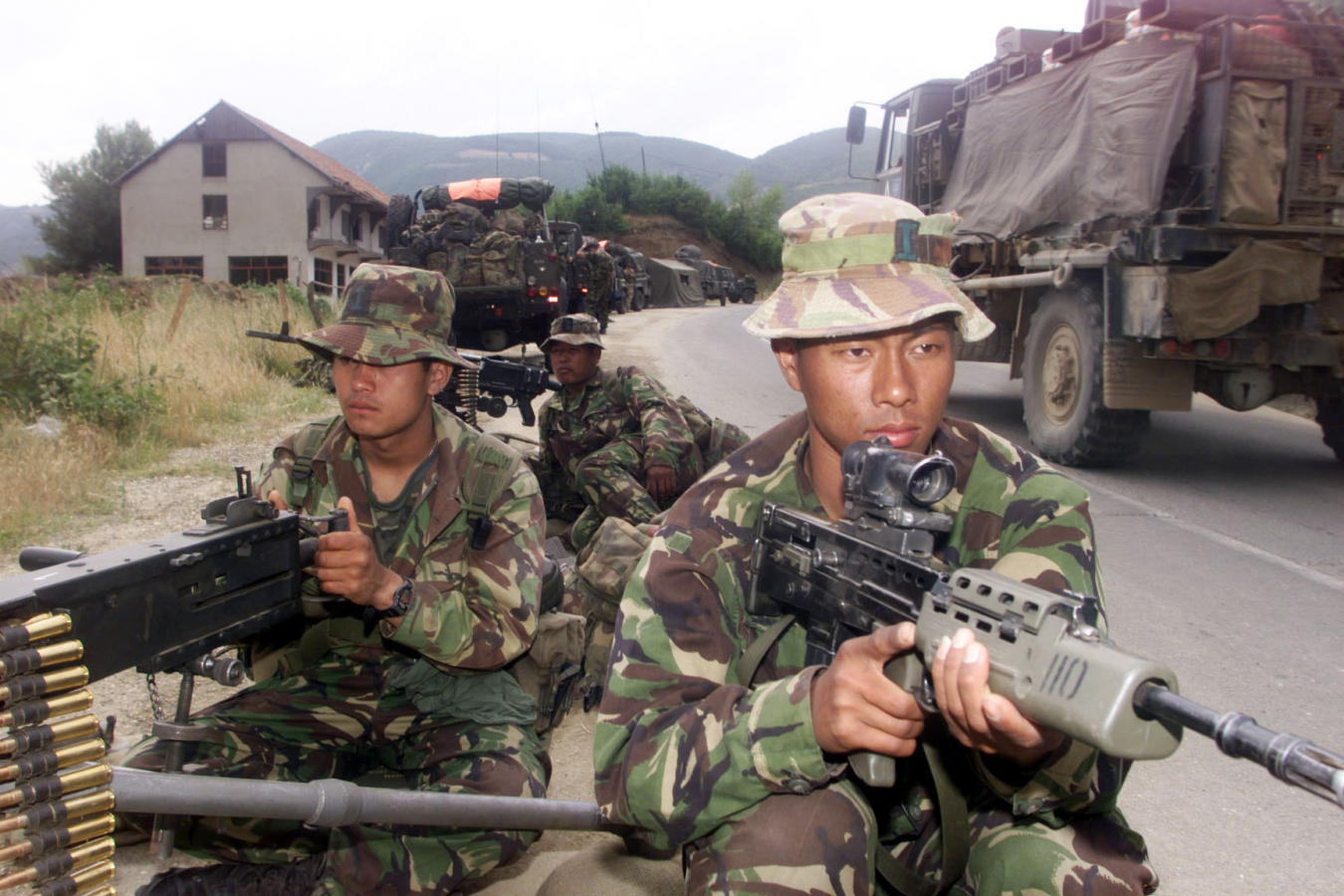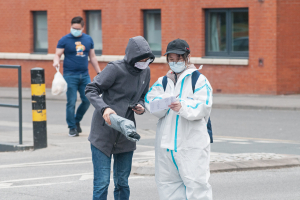Support migrant centric journalism today and donate

Comments by Sanwar Ali:
The UK visa system is complex, expensive and bureaucratic. It must be possible to make it simpler and easier to navigate so making it easier for overseas Army recruits to extend their UK visa. These overseas applicants are not allowed to work while waiting in the UK and so may be facing financial difficulties. There has been a shortfall of recruits that has seen Army combat units 40% below strength. Perhaps there will be more demand for Army jobs in future due to higher unemployment caused by the coronavirus COVID-19 pandemic.
The Gurkhas are another group of overseas soldier that has been treated badly in the past. They did not have the same rights as their British and Commonwealth colleagues in the British Army. The Gurkha Justice Campaign was set up and was successful. The rules were changed in 2004, so that all Gurkhas who retired from the British Army after 1997 would be able to apply for permanent residence in the UK. Then another concession was made on 21 May 2009, when it was announced that all former Gurkhas who have served in the British Army for at least four years will be able to apply for settlement (proper term for permanent residence in the UK) in the United Kingdom. The Boris Johnson Conservative Government has also frequently changed their mind due to public opinion.
Nearly 200 Commonwealth Army recruits face losing their UK visa because of blood test backlogs. Military personnel from India, Jamaica, St Lucia and more flew to the UK in November 2019 for Army assessment tests. However, nine months later, 170 have been left waiting for blood tests and have been unable to start training, leaving them jobless.
Many have already been forced to leave Britain, while others fear that their UK visa will run out. The obligatory blood tests are required to screen for sickle cell trait, a blood disorder that’s related to sickle cell anaemia.
For many the situation became desperate and they have left the UK, paying thousands for flights home amid the coronavirus pandemic. Those that have remained in Britain are worried that they will become illegal immigrants by the end of July because their UK visas, which were extended due to the global health crisis, will expire.
Claims that coronavirus is the cause of the delays
Military recruitment firm, Capita, oversees the organising of blood tests and the Ministry of Defence (MoD) has blamed the coronavirus pandemic for the backlog. The MoD has been unable to secure any UK visa extensions with the Home Office for those affected.
One former Commonwealth solider who has one of the new recruits from St Lucia living with him, told the Daily Mail that this had been an issue since before Christmas.
Former Private Junior President, 29, who served in the Royal Logistic Corps, said: ‘Capita still hasn’t booked many people on to blood tests. They are blaming COVID-19 even though people have been waiting since November. Everyone is jumping on the COVID bandwagon. These people will become illegal immigrants at the end of July.’
Applied online from overseas to join British Army
The former private went on to say that the recruits had applied online to join the Army in 2019, paying for their own flights so they could undergo the initial assessment in Britain.
He said: “If they pass the assessment – which includes physical tests – then they are offered a job and start training with the Army. Quite a few people have cancelled their application. People have been waiting in this country as visitors, they are not allowed to work.”
“They really want to join the Army. In a few days they will be illegal immigrants and they’ve wasted nine months waiting for blood tests to be organised,” he added.
According to the former private, one female recruit returned to St Lucia because she’d been waiting nine months for a blood test and had ‘given up hope.’
Overseas Army recruits living with sponsors
While awaiting their initial assessment, new Army recruits tend to live with a sponsor – usually people with connections to the military who will offer them accommodation for several months.
During those months they are prohibited from working and have to cover their own expenses.
Labour’s Shadow Defence Secretary, John Healey, described the treatment of Commonwealth Army recruits as ‘utterly unacceptable’.
He said: “It is utterly unacceptable for the MoD and Home Office to treat Commonwealth citizens who want to serve and defend the United Kingdom in this way. Capita has been a big part of this Government’s failure on Forces recruitment over the last decade, 10 years, and now it seems to have totally failed these Commonwealth 170 recruits.”
“Ministers must sort this mess out, secure these visa extensions, get the blood tests done and get these recruits into active service,” Healey added.
170 waiting for blood tests
According to the MoD, approximately 170 Commonwealth Army recruits are in a queue for blood tests, which were halted following the coronavirus outbreak. The tests have reportedly resumed, and it’s expected that the backlog will be cleared by August.
A spokesman for the MoD said: “We recognise the additional pressures placed on Commonwealth recruits during this time and will support candidates with visa extensions where necessary.”
In December 2019, sickle cell trait was identified as a genetic characteristic that needed to be tested for and carefully managed in order to reduce risks during military training.
UK visa extensions were initially granted until the end of July by the Home Office and there are currently no plans for visas to be extended further.
Workpermit.com can help with Tier 2 Visa Sponsor Licence and Tier 2 Visa
If you need help with a Tier 2 visa, or a Tier 2 Sponsor Licence, including help with complying with your Tier 2 Sponsor Licence obligations, workpermit.com can help.
For more information and advice on Tier 2 Sponsor Licences, UK immigration law and UK visa applications please contact us on 0344 991 9222 or at london@workpermit.com





















